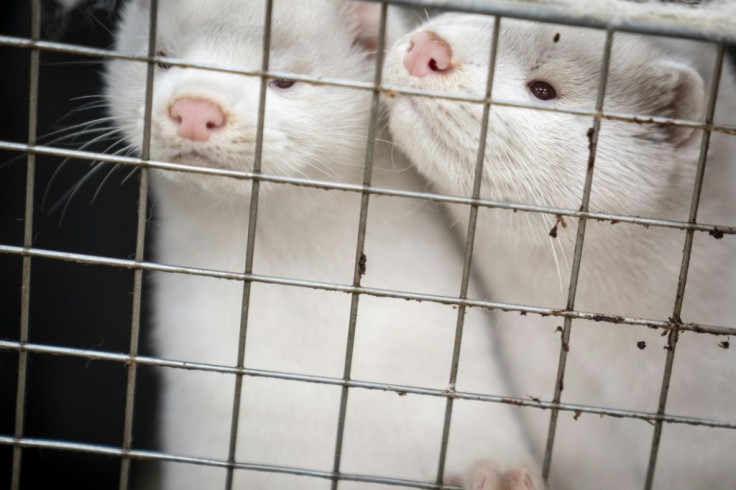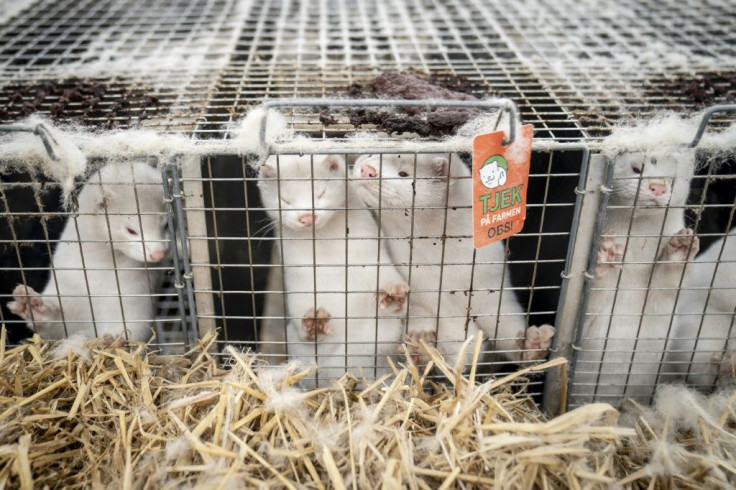'Mutant' Mink Coronavirus Strain: Do People Need To Worry?
KEY POINTS
- Denmark has reported 214 human cases of COVID-19 transmission linked with farmed minks since June 2020
- Initial studies found that the minks were possibly infected by humans first and transmission from minks to humans occurred after
- Health specialists warned against the panic, saying that there appears no great risk involved
A group of scientists asked the public not to panic despite a worrisome announcement from the government of Denmark: The country culled 17 million minks, fearing that the animals could spread a new strain of coronavirus to humans, and disrupt the potential development of COVID-19 vaccines.
Since June 2020, Denmark reported 214 human cases of COVID-19 transmission associated with farmed minks. Twelve of the cases, in patients ages 7 to 79 years, were infected with a unique strain of coronavirus. It's possible the minks became infected by humans first.
The panic heightened after initial studies found that the new coronavirus strain was less sensitive to neutralizing antibodies, suggesting vaccines might not work on that particular strain.

On Nov. 8, international health experts minimized the likelihood of a mutated strain of COVID-19.
Gilles Salvat of the The French Agency for Food, Environmental and Occupational Health Safety (ANSES) told Agence France-Presse that the culling of millions of minks was a precautionary measure. But Salvat noted that a mutated COVID-19 strain could interfere in the development of different vaccines.
"Coming up with a vaccine for one strain is already complicated, and if we have to do it for two, four or six strains it is even more complicated," Salvat said.
Meanwhile, Francois Balloux of the University College London, said the culling was "entirely justifiable from a health perspective," and is necessary eliminate to the source of a serious virus.
Other medical experts were puzzled by Denmark's claim of a mutated virus.
James Wood, head of veterinary medicine at Cambridge University, said the significance of the reported mutations in Denmark has “not yet been evaluated by the international scientific community and [is] thus unclear.”
Furthermore, Angela Rasmussen, a virologist at Columbia University in New York, hinted in a tweet that the Danish health experts should seek international assessments at this point, and questioned apparent efforts to not share the genomic data within the scientific community for a more concrete evaluation.
Hard agree. Data sharing and transparency are critical and it’s hard to understand why this key genomic surveillance data was not shared, given that Danish officials clearly think they are highly significant to public health. https://t.co/JbSCF5pU8K
— Dr. Angela Rasmussen (@angie_rasmussen) November 6, 2020
On Nov. 6, the World Health Organization (WHO) had noted that cases of COVID-19 in minks farmed for fur had been reported by other nations, including the Netherlands, Spain, Sweden, Italy, and the United States. This prompted the organization to call for countries to conduct further research and share results with the international community.
"WHO advises further virological studies should be conducted to understand the specific mutations described by Denmark and to further investigate any epidemiological changes in function of the virus in terms of its transmissibility and the severity of disease it causes," the agency said in a press release.
"WHO advises all countries to increase the sequencing of SARS-CoV-2 viruses where possible and sharing the sequence data internationally," the WHO added.

© Copyright IBTimes 2024. All rights reserved.





















